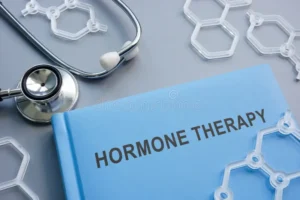Navigating employment requirements in New York can be complex, especially when it comes to physical examinations. Many job seekers and employers wonder about the legal framework surrounding work physicals in the state.
New York Labor Laws do not generally require pre-employment physicals for most positions, but certain industries and job types do have mandatory medical examination requirements. These exceptions typically involve positions where physical capabilities directly impact public safety or where specific health standards must be maintained.
Industries such as construction, healthcare, transportation, and public safety often implement physical examinations as part of their hiring process. While not universally mandated by state labor law, these examinations must comply with both New York State Human Rights Law and federal regulations when they are required, ensuring they remain job-relevant and non-discriminatory.
Legal Basis for Pre-Employment Physicals in New York
New York State maintains specific legal provisions governing when employers with 4 or fewer employees can require pre-employment physical examinations. These regulations balance employer interests in workplace safety with employee privacy rights.
New York State Labor Law Requirements
New York Labor Law does not explicitly mandate pre-employment physicals for most positions. However, certain occupations, particularly those involving public safety or health risks, may require physical examinations under state regulations.
For positions in healthcare, commercial driving, or emergency services, pre-employment physicals are often legally required to ensure workers can safely perform essential job functions. These requirements are typically outlined in occupation-specific regulations rather than general labor law.
Employers must ensure any required physical examination is genuinely job-related and consistent with business necessity. This standard derives from both New York State Human Rights Law and federal protections under the Americans with Disabilities Act.
Physical examination requirements must be applied consistently to all applicants in the same job category. Selective application could constitute discrimination and violate state law.
Roles of the Department of Labor
The New York State Department of Labor oversees compliance with workplace safety regulations that may involve physical capability assessments. They provide guidance to employers regarding when pre-employment physicals are appropriate or required.
The Department enforces standards for medical examinations when they relate to occupational safety regulations. This includes monitoring compliance with industry-specific requirements for positions where physical capability directly impacts public safety.
Employers can request advisory opinions from the Department when uncertain about the legality of requiring a physical examination for specific positions. This service helps businesses navigate the complex intersection of labor law and medical testing requirements.
The Department also investigates complaints regarding improper or discriminatory use of pre-employment physicals. Workers who believe they’ve been subjected to unnecessary or discriminatory examinations can file complaints for investigation and potential remediation.
Implementing Pre-Employment Physical Exams
Pre-employment physicals serve as an important tool for New York employers in certain industries to ensure workplace safety and determine an applicant’s ability to perform essential job functions. These medical examinations must be implemented carefully to comply with state and federal regulations while protecting both employer interests and employee rights.
When Employers May Require Physicals
New York employers may require pre-employment physical exams when they are job-related and consistent with business necessity. For positions involving physical demands or safety concerns, such as construction workers, healthcare providers, or machine operators, these exams are often required to provide a safe working environment.
State law permits required physicals for positions where the employee’s health directly impacts job performance or public safety. For example, commercial drivers must undergo medical certification per federal regulations.
The timing is important – these exams should only be conducted after a conditional job offer has been extended. Employers must apply the same physical requirements to all applicants in the same job category.
Certain industries have specific mandates. Construction workers may need physicals to assess their ability to perform tasks involving heavy lifting, climbing, or operating dangerous equipment.
Physical Exam Procedures and Employer Obligations
Employers must follow specific procedures when implementing pre-employment physicals. The examination should be narrowly tailored to assess only job-relevant physical capabilities or health conditions.
Employer Requirements:
- Notify applicants in writing about required examinations and the potential impact on their amount of sick leave.
- Cover all costs associated with required physicals
- Maintain confidentiality of medical information
- Store medical records separately from personnel files
- Limit access to medical information
The scope of the exam must directly relate to essential job functions. For example, a test for back strength would be appropriate for jobs requiring heavy lifting but unnecessary for desk positions.
Employers should work with qualified healthcare providers who understand occupational health requirements. This ensures examinations are properly conducted and documented to prevent potential liability.
Accommodations and Non-Discrimination
When implementing pre-employment physicals, employers must comply with the Americans with Disabilities Act (ADA) and New York State Human Rights Law. These laws prohibit discrimination against qualified individuals with disabilities.
If a physical exam reveals a medical condition, employers must:
- Consider reasonable accommodations that would enable the applicant to perform essential job functions
- Engage in an interactive process to determine appropriate accommodations
- Document accommodation discussions and decisions
The presence of a medical condition or disability alone is not sufficient grounds to withdraw a job offer. Employers must demonstrate that no reasonable accommodation exists or that the condition poses a direct threat to workplace safety.
New York law provides robust protections against discrimination based on past or current medical conditions, including history of occupational injuries. Employers should focus on the applicant’s current ability to perform job functions safely, not on speculative concerns about future health issues.
Privacy and Recordkeeping in Employee Health Matters
New York employers must maintain strict confidentiality standards when handling employee health information from work physicals. Proper recordkeeping practices are essential for compliance with both state and federal regulations, while balancing workplace safety needs with personal privacy rights.
Confidentiality of Medical Information
Employers in New York must treat all medical information obtained through work physicals as strictly confidential. Under HIPAA and state privacy laws, an employee’s health records cannot be disclosed without proper authorization.
Medical records must be stored separately from regular personnel files. This separation ensures limited access only to authorized personnel who have a legitimate need to know the information.
Employers can only request information that is directly relevant to job performance or workplace safety. They cannot demand comprehensive medical histories when a more targeted assessment would suffice, especially under the terms of a collective bargaining agreement.
New York employers face potential liability if they improperly share or mishandle sensitive health information. Violations may result in significant penalties under both federal and state regulations.
Recordkeeping Requirements for Health Examinations
New York employers must maintain accurate and complete records of all work-related physical examinations. OSHA regulations require certain medical records to be preserved for the duration of employment plus 30 years.
Documentation should include:
- Date and type of examination required to provide for workplace safety.
- Healthcare provider’s name and qualifications
- Specific job-related findings
- Any work restrictions or accommodations
These records must be securely stored with controlled access. Electronic systems must have appropriate safeguards to prevent unauthorized viewing or data breaches.
Employees have the right to access their own medical records maintained by the employer. Employers must provide copies upon request within 15 business days, as specified by New York Labor Law.
Compliance with Drug-Free Workplace Policies
New York employers implementing drug testing as part of work physicals must follow specific protocols. Random testing is permitted only in safety-sensitive positions or where mandated by federal regulations.
Drug and alcohol testing procedures must be:
- Administered consistently across similar positions
- Conducted with proper chain-of-custody protocols
- Performed by certified laboratories
Positive test results must be handled with strict confidentiality. Only relevant supervisors and HR personnel should be informed of results on a need-to-know basis, in accordance with the accrual of employee privacy rights.
Employers should clearly document their substance abuse policies. This documentation should outline testing procedures, consequences of positive results, and available employee assistance programs.
New York recognizes certain medical marijuana exemptions that employers must consider when interpreting drug test results. These exemptions require careful navigation to avoid disability discrimination claims.
Where to get Work Physicals in Lower Manhattan?
Lower Manhattan offers several facilities where employees can get work physicals. These locations provide comprehensive health assessments required for various occupations.
Raymond Lau FMPC stands out as a reliable option for work physicals in the area, especially for employers with 4 or fewer employees. Located at 384 Grand St Front #3, New York, NY 10002, this facility serves employers and employees throughout Lower Manhattan.
They provide professional medical examinations that comply with NY labor regulations. Their experienced medical staff conducts thorough assessments to ensure workers meet health requirements for their specific roles.
To schedule an appointment, individuals can call 646-885-1399. The clinic maintains flexible hours to accommodate workers’ busy schedules.
Frequently Asked Questions
New York has specific regulations governing workplace physicals and medical examinations that both employers and employees should understand. These requirements vary by industry and circumstances, with important legal protections in place.
What are the legal requirements for employee physicals in New York State?
New York State does not generally mandate workplace physicals for all employees. However, certain regulations may apply depending on the industry and job responsibilities.
The primary guidance comes from both state labor laws and federal regulations such as the Americans with Disabilities Act (ADA). These laws permit medical examinations when they are job-related and consistent with business necessity.
Employers must ensure that any required physical examinations are conducted in a non-discriminatory manner and with appropriate confidentiality protections for medical information.
Is a pre-employment physical examination mandatory for all job positions in NY?
Pre-employment physicals are not mandatory for all positions in New York. They are typically required only for positions where specific physical capabilities are essential job functions, as outlined in a collective bargaining agreement.
Industries such as healthcare, transportation, public safety, and construction commonly conduct pre-employment physicals due to the physical demands or safety considerations of these positions. For standard office roles, pre-employment physicals are generally not required.
Employers must ensure any pre-employment screening is consistently applied to all applicants for the same position.
How often are employers permitted to request medical examinations under New York labor laws?
New York employers may request medical examinations when there is a legitimate business necessity. This includes situations where an employee’s ability to perform essential job functions may be impaired due to a medical condition.
For ongoing medical examinations, the frequency must be reasonable and justified by business necessity. Regular examinations may be required in certain regulated industries such as transportation, where commercial drivers undergo periodic medical certification.
Employers cannot use medical examinations as a form of harassment or discrimination.
Are there specific industries or job roles in New York that mandate health screenings?
Several industries in New York require regular health screenings by law. Healthcare workers often need tuberculosis testing and proof of immunizations to ensure they can accrue hours of paid sick leave if necessary.
Commercial drivers must meet Federal Motor Carrier Safety Administration (FMCSA) physical requirements. Construction workers handling hazardous materials may require specialized health monitoring under OSHA regulations.
Public safety positions such as firefighters and police officers typically undergo comprehensive medical evaluations both pre-employment and periodically throughout their careers.
What are the rights of employees regarding workplace physical examinations in NY?
Employees have the right to confidentiality regarding their medical information. Results from workplace physicals must be stored separately from personnel files with restricted access.
Workers have protection against discrimination based on disability under both New York State Human Rights Law and the ADA. If a medical condition is identified, employers must consider reasonable accommodations before taking adverse employment actions.
Employees may request alternative examinations if they have religious objections to specific procedures, and employers must reasonably accommodate these requests when possible.
Under what circumstances can a New York employer legally request a medical examination from an employee?
Employers can legally request medical examinations when there is reasonable concern that an employee cannot perform essential job functions due to a medical condition. This includes situations where workplace safety might be compromised due to mental or physical illness.
Following workplace injuries or extended medical leaves, employers may request fitness-for-duty examinations to ensure employees can safely return to work. These must be job-related and consistent with business necessity.
When workplace accommodations are requested, limited medical examinations may be conducted to determine appropriate modifications. For specialized guidance on navigating complex workplace medical examination requirements, professionals at Raymond Lau FMPC offer consultation services.







